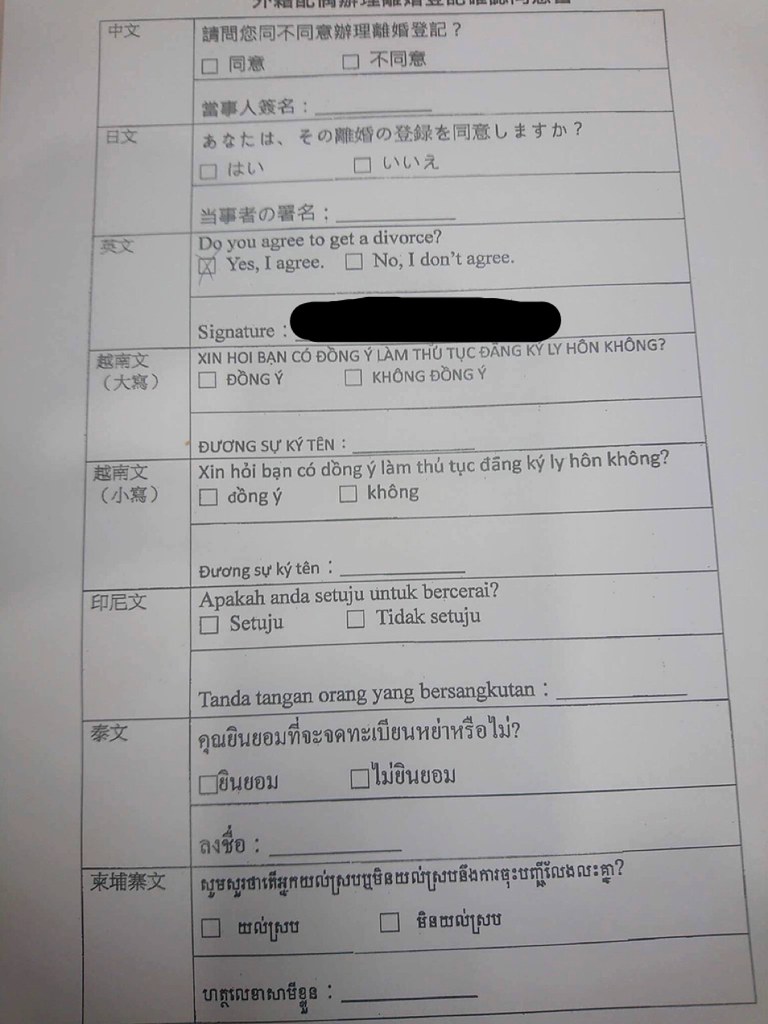A week ago, I was mentally preparing to draft a positive post about Taiwan's handling of the current outbreak. The main thesis? That the government had made mistakes, but coverage of those mistakes was devolving into taking potshots: people are frustrated, anxious, possibly out of work (our income has decreased, but we'll pull through) and it's leading to them kicking at Taiwan to a point I felt was unfair.
The shortened quarantine of pilots? A bad move, but few complained about it when there were no outbreaks. The slow vaccine rollout? Come on -- y'all didn't want AZ when it was available, and people like me signed up for self-paid shots because we thought we were saving them from the garbage. That Taiwan is facing Chinese interference and a global vaccine shortage? Not Taiwan's fault. That the government hadn't kept up with evolving data on the emerging variants? Not great, no -- but Taiwan is shut out of the WHO; was this entirely an issue of complacency? The worrying use of data to monitor people in outbreak areas such as Wanhua? Not ideal, but people who don't want to use the QR codes (a level of contact tracing that other countries never even attempted) can still register on pen and paper.
Basically, I was a bit annoyed that, as the rest of the world got an F in its coronavirus response (the US seems to have done a bit of extra credit and might squeak by with a D-), Taiwan was getting kicked because it got an A on the last test but only a B on this one. Like people were ready to turn on an administration that had competently seen us through 16 months of safety -- 16 months made necessary by the fact that (again!) the rest of the world couldn't get its shit together.
I had intended to say that while some people in the Chinese-speaking public discourse sphere were indeed being constructive and offering ways to do better next time, some were absolutely using this as an opportunity to attack the Tsai administration, CCP-style. Some members of the foreign community were being outright ridiculous in their willingness to buy the bullshit the KMT, CCP and their associated compradores were selling. Although I can't influence local discourse, I was going to state that I would not be a party to this in the foreign community, and that while there are valid criticisms to be leveled at the government, I would not feed the growing toxicity of the discourse in English.
The thing is, I no longer want to write the longer version of that post. I'm angry.
I can forgive a few mistakes. I can point out where constructive criticism turns toxic. What I cannot forgive is unconscionable racism towards the Southeast Asian immigrant community, which the central government isn't doing enough to combat.
We were all angry when the Miaoli County government forbade foreign blue-collar workers, who are generally from Southeast Asia, from leaving their quarters (most live in cramped factory dormitories or live with the families who employ them as caregivers). We all felt that relaxing restrictions for some foreign workers was completely insufficient.
The move can not be justified on any grounds except discrimination: those workers mix with Taiwanese workers at factories and Taiwanese families in homes, so locking them up while their Taiwanese colleagues and employers are free to move about makes these measures even more cruel and meaningless. The domestic workers are often tasked with running errands which include taking elderly charges out, refilling medication or accompanying them to the doctor. Unable to do this, families would have to do these things themselves -- what purpose did it serve, if other members of the household could still go out?
But now it's not just Miaoli. This is happening in Tainan, in Changhua, and beyond. The central government have handled this issue weakly at best, and have implemented their own restrictions, mostly regarding employee transfers. They have not done nearly enough.
I'm not really sure how it is that the government can lay claim to all our data -- including data we weren't asked if we wanted to provide and weren't told was being collected -- but not shut down the completely unacceptable treatment of these workers across the country.
Let me repeat: this is not acceptable. There is no justification. From an epidemic prevention standpoint it doesn't even make sense, because people do not spread diseases on the basis of their national fucking origin. The immigrants who live here interact with Taiwanese and will continue to interact with Taiwanese, because they're still going to work. Forcing them to stay in disease-prone crowded dorms with poor ventilation will only make it worse.
If you think it is justified, then fuck you.
It's not about race plenty of Taiwanese citizens are from Southeast Asia because they married in and gave up their...no.
But COVID is spreading in those communities so it makes sense even though they're still interacting with locals who have freedom of moveme...no.
It is about race, and you know it's about race.
There's a class element as well, but those factories also have Taiwanese workers who are not locked in, so it is primarily just plain old racism.
Some companies even try to spin these lockdowns as "helping" the workers, rather than literally jailing them:
In fact, the right move both isn't just to end these racist practices immediately, but to reform the entire blue-collar labor system, top to bottom. It's to proactively prioritize these immigrants on the vaccination list because their living and working conditions increase chances of an outbreak, and to improve those living and working conditions in the long-term. This isn't just for them, but for the country: to prevent further spread, and also ensure the outbreak doesn't shut down vital industries.
What frustrates me -- and why I'm taking it out here -- is that I don't know what to do about it.
When it was cafes banning foreigners I could contact them privately, and I spent hours doing so, among other actions. Most agreed to change their policy when presented with a reasonable argument and the chance to save face before their businesses got review-bombed. When it's something like trying to wheedle Last Week Tonight into doing an episode about Taiwan, I have a plan for balancing relentlessness with comedy that I hope will work (please sign, by the way). When it's discriminatory Youbike rules, I can write to Taipei City government.
But this? Yes, we can donate, and should (see the links at the bottom of this post for places where you can do so). We can sign this petition. I suppose I could write to each government to lodge my complaints, but if they're not listening to the CECC, why would they listen to me? So I just don't know what to do except write about it.
That is incredibly frustrating. I would help occupy the street outside of one of these factories if I thought it would do any good, and if public gatherings were possible. I would write up a letter in Mandarin, if I thought I could influence the discourse, but there are native speakers more eloquent than me with a more local perspective who are better qualified to do this.
In fact, there is one positive I can think of: there are locals angry about this too. On the social media of politicians promoting these restrictions, the pushback has been local (with a few of us angry foreigners mixed in too). Local friends have been sending me the aforementioned petition so it's getting local attention. Not everyone in Taiwan is as awful as those clowns in Miaoli.
In other words, I feel completely impotent in the face of this issue which angers me so very deeply. It's hard to even write more than a few pieces on it because "Racism Continues To Be Racist" only has so many variations. Your suggestions are welcome.







